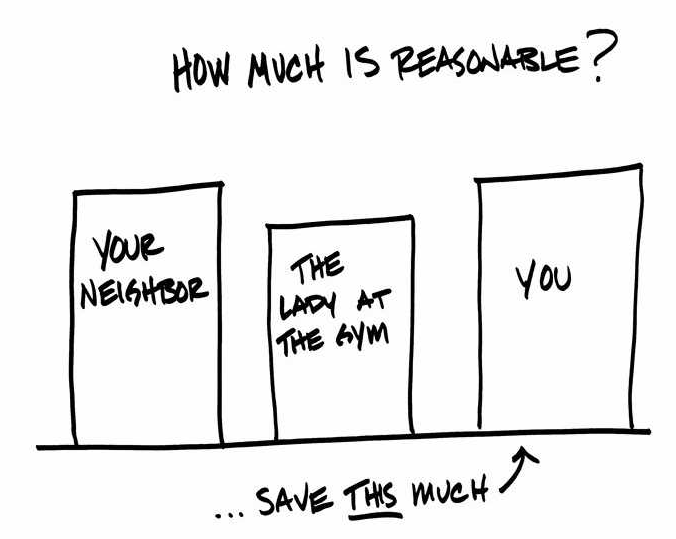Earlier this week, I wrote about the ways in which residents’ lives change dramatically during the transition to practice. For many, this transition feels like a complete 180. (If you missed the post, check it out here.)
As promised, I’m going to devote today’s post to introducing the concept of a “Life After Residency Alliance,” which is a group of people you can rely on for support, guidance and direction as you transition to practice.
The concept is taken from Napoleon Hill’s Mastermind Alliance, a philosophy of assembling a select group of people (Masterminds) to achieve a definite purpose. Each person contributes his or her strengths and talents, and helps to form a stronger alliance.
Creating a Life After Residency Alliance — a special type of Mastermind Alliance for new physicians — will make your transition to practice much easier.
As I stressed in my last post, the majority of your advisors were assigned to you during medical school and residency. Now, it’s up to you to assemble your own team.
Let’s walk step by step through the process of assembling a Life After Residency Alliance:
1) Determine Your Purpose (Beyond Being a Physician)
You wouldn’t board a train without knowing where it was going, right? The same should apply to your work and life — what’s the point of putting effort into something unless you know your ultimate goal?
Determining your purpose beyond being a physician can be a difficult exercise, but with a little effort and reflection, it’s not as hard as it seems.
Because of space constraints here, I’ll point you toward several purpose-determining exercises from the Adventures in Medicine Resource Library, which you can find here:
Adventures in Medicine Stage 4: Life, Money and Career Priorities
Once you’ve developed your purpose statement and vision, you can proceed with the next step.
2) Select the Members of Your Life After Residency Alliance
Navigating life after residency can be extremely confusing, and you might not have any idea which kinds of people you want in your alliance. I’ve outlined my suggestions below, but you might think of other people to approach, too.
No matter the types of people you select for your alliance, remember the following two principles:
- First, choose alliance members because of their ability to do the job well. Don’t just pick people because you know and like them.
- Second, keep in mind that you — and your alliance members — must work in a spirit of harmony with others. Without harmony, the alliance as a whole can fail.
Here are five types of people I’d suggest approaching for your alliance. You may want to include more:
Attorney: Choosing an attorney who specializes in healthcare and physician employment contracts can be a lifesaver. Have one picked out and go over your preliminary needs before you actually seek his or her assistance.
Contract Negotiator: A contract negotiator can be a great addition to your alliance, especially if you’re uncomfortable with negotiation. He or she should be an expert in physician compensation, physician productivity bonuses and compensation structures.
Life/Career Coach: This invaluable member of your alliance can help you develop your personal mission, vision and values. Then, he or she can show you how to incorporate them with your significant other, family and employer. Iris Grimm of The Balanced Physician is a highly recommended life and career coach who specializes in helping physicians.
Financial Advisor: Getting a healthy start on managing your finances post-residency is essential. Choose an alliance member who can help:
- Create a plan for paying back your student debt
- Advise you on what to spend on a house
- Educate you on how to invest with your first paycheck
Physician Recruitment Advisor: This individual will help you uncover physician opportunities that align with your mission, vision and values. Choose your recruiter wisely, and make sure he or she isn’t just trying to push you into any old job.
3) Nurture and Maintain Your Life After Residency Alliance
Once you’ve assembled your alliance, be sure to keep it healthy with consistent communication. Above all, this is the key to learning from your alliance members and maintaining sound relationships with all of them.
Everyone leads a busy life — especially yourself — but by taking extra time to stay in touch and up-to-date with your alliance members, you’ll have more of an opportunity to grow. Remember that they are part of other alliances, too, and that if you go out of your way to treat them well, they’ll serve you better in the long run.
All the best,
Adriana Tobar, MD
Have any questions about building your own Life After Residency Alliance? Post them in the comments!
Sponsors
Though the views expressed above are solely the writer’s, Guthrie Clinic supports “The Dose with Dr. Goodhook” and is partnering with Adventures in Medicine to create an open, inspiring and insightful community for residents and physicians. Click here to learn more about ways that Guthrie Clinic is making practice purposeful.








